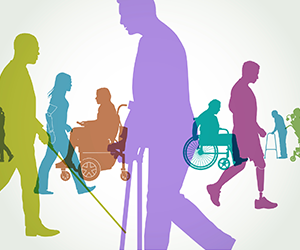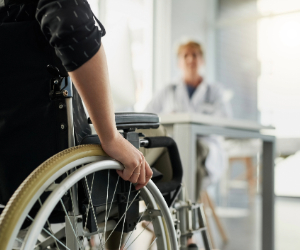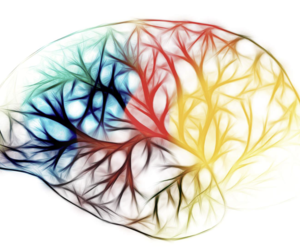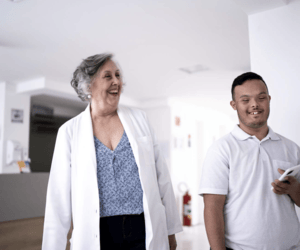Disability Competent Care | Health Care
Courses within this series focus on best practices for recognizing, diagnosing, and treating health needs in persons with disabilities through cultural and linguistic competence and humility.
Learning audiences include Health providers (primary care professionals, health aides, peers, and unlicensed and licensed staff) practicing in Colorado's health system and other health providers, such as those within schools, emergency settings, crisis response, and correctional settings. Further, this series is appropriate for caregivers, parents, and the general public.
To enroll in all available DCCHC courses, select this link.
Review individual courses below.
Popular Courses

Disability Cultural Competency in Health Care (DCCHC) | Full Enrollment
View Details

Understanding Decision-Making Options
Welcome to Understanding Decision-Making Options, presented by the Colorado Department of Health Care Policy & Financing.
This course provides an overview of the legal and practical aspects surrounding decision-making options for individuals with disabilities. It specifically focuses on individuals with intellectual and developmental disabilities, who are more often placed under restrictive decision-making arrangements.
This course begins with a historical perspective to highlight the importance of advocating for individuals' rights to make their own decisions. We will then explore various decision-making options, including guardianship and supported decision-making, to provide you with a thorough understanding of their purposes and implications. Finally, we will cover best practices for evaluating decision-making capacity, providing you with guidance to conduct assessments that respect the individual's autonomy and serve their best interests.
View Details

Interpretation Services in Healthcare: Best Practices, Recommendations, and Requirements
Interpretation services are life-changing and sometimes lifesaving services that help to bridge communication gaps and language barriers in many critical areas of life. In this course, you will learn about the state of interpreter services today while exploring deficiencies, areas for improvement, and best practices for providing and using interpretation services in healthcare spaces. The goal is to improve accessibility and increase positive outcomes for individuals who communicate through American Sign Language (ASL), as well as individuals with Limited English Proficiency (LEP) in Colorado. This course also emphasizes the intersectionality of race, gender, sexuality, and social economic status and the ways in which these factors can shape individuals' experiences, opportunities, and outcomes.
View Details

Optimizing Healthcare for People with Physical Disabilities
View Details

Culturally Responsive Care for Deaf and Hard of Hearing Individuals in Medical Care Settings
This course explores the unique experiences, needs, and challenges faced by Deaf, DeafBlind, DeafDisabled, and Hard of Hearing communities in accessing medical healthcare. Participants will learn about deafness and Deaf culture to identify barriers to care, understand health disparities, and apply standards of care to ensure equitable health outcomes. This course emphasizes the importance of taking a linguistically and culturally responsive approach in clinical practice, guiding participants in developing personalized action plans to better serve deaf and hard of hearing patients. Through research-based text, vicarious observation, and practical exercises, learners will gain the knowledge and skills to improve healthcare equity and outcomes for these communities.
View Details

Ableism in Healthcare: Recognition and Response
View Details

Brain Injury Essentials for Healthcare Professionals
Individuals who have suffered a brain injury face many challenges following their injury, including physical, cognitive, and emotional consequences that can range from inconvenient to debilitating. Whether the brain injury is mild, moderate, or severe, patients rely on medical professionals to guide the recovery process and help them thrive in the aftermath of an injury.
This training gives primary care providers the knowledge and skills needed to better understand and support individuals who have experienced brain injury. It covers the different types of brain injuries, their causes, and the physical, cognitive, and emotional impacts they can have. By the end of the program, providers will be equipped to effectively collaborate with their patients to improve their quality of life.
View Details

Strategies for Supporting Individuals with I/DD When Receiving Medical Care
This course focuses on working with individuals with intellectual and developmental disabilities (I/DD). It will equip you with the knowledge and skills you need to understand and support this population effectively. The course covers a variety of topics that are relevant to I/DD, providing a comprehensive understanding of the unique behavioral health challenges that individuals with I/DD face.
You will gain insights into the specific behavioral, emotional, social, and medical challenges individuals with I/DD may experience and how these challenges can manifest in various settings. You will see that medical conditions are often at the core of challenging behavior in individuals with I/DD.
Furthermore, the course will emphasize the importance of person-centered approaches and individualized care when working with individuals with I/DD. You will explore strategies for establishing rapport, building trust, and effectively communicating with individuals with communication difficulties. Collaboration with families, caregivers, and interdisciplinary teams will be crucial to supporting individuals with I/DD. You will understand the importance of involving family members and caregivers in the treatment process and collaborating across Colorado's system of care.
Completing this course will enhance your ability to provide compassionate and effective support for individuals with Intellectual and Developmental Disabilities, promoting their behavioral health and overall well-being.
View Details

Brain Injury Screening, Identification, and Treatment Considerations
Screening protocols are essential for helping individuals with brain injuries access the care they need. Brain injuries can significantly impact a person's health, function, and well-being, putting them at higher risk for various physical and mental health challenges. This course focuses on the tools and strategies necessary to assess and evaluate the impact of brain injuries accurately. You'll learn how to gather detailed information about an individual's injury history, conduct comprehensive health history interviews, and recognize when specialist care is needed.
In addition to addressing the direct effects of brain injuries, this course also explores the unique challenges faced by individuals as they adjust to life post-injury. These challenges often include communication difficulties, mood disturbances, and cognitive issues, which can complicate access to care — especially for those with co-occurring behavioral health conditions. By understanding these added complexities, you will be better equipped to support both patients and their caregivers, tailoring treatment plans to meet each individual's specific needs.
View Details
